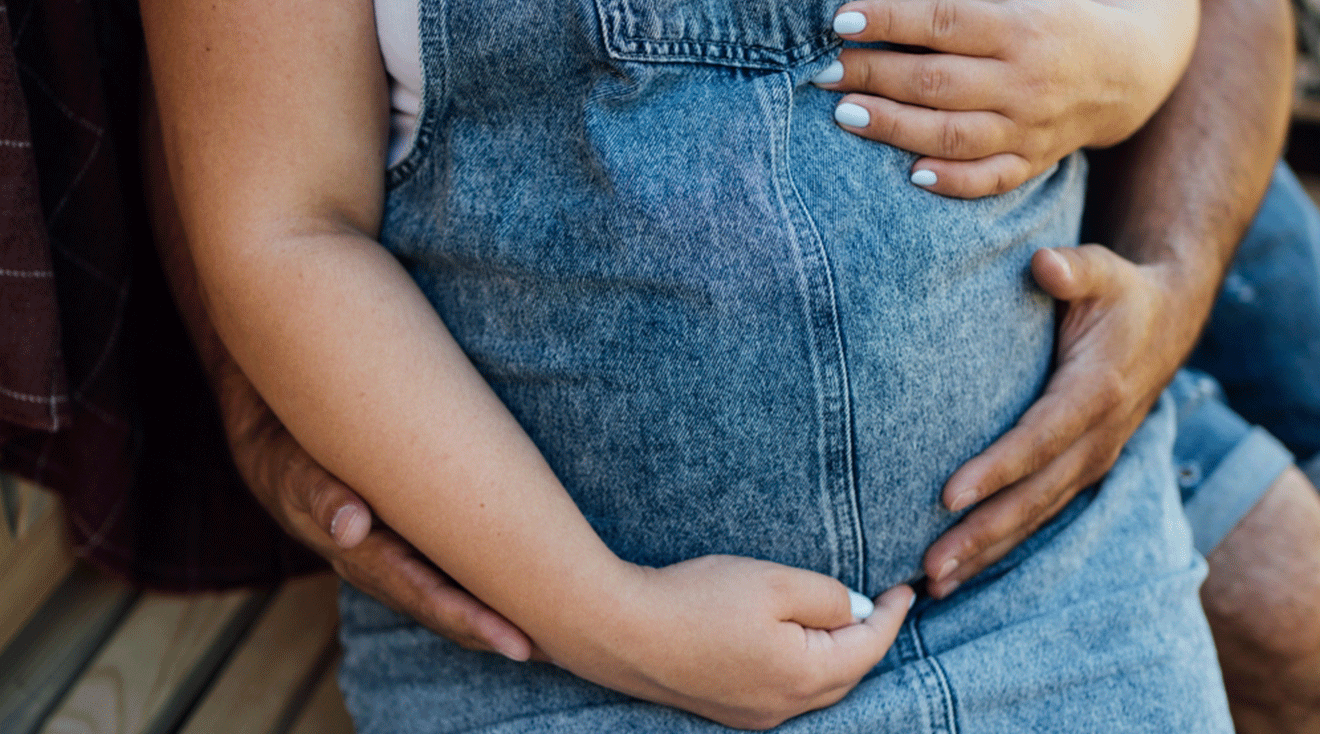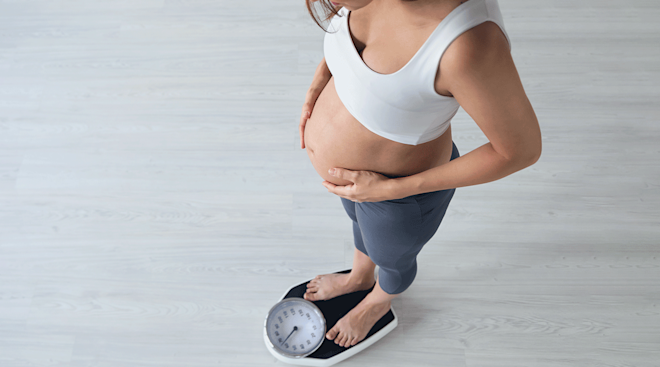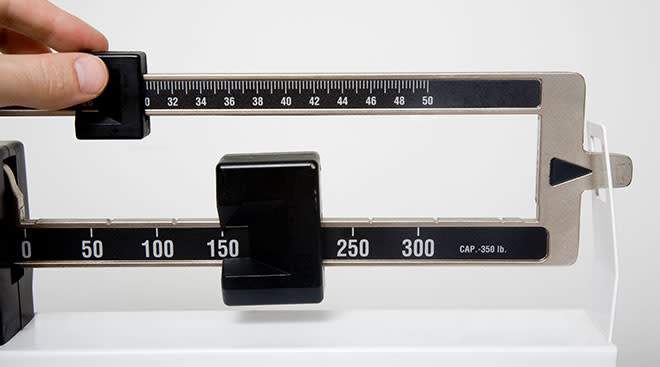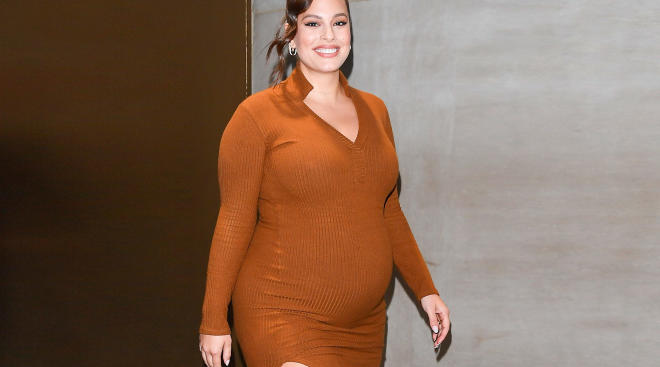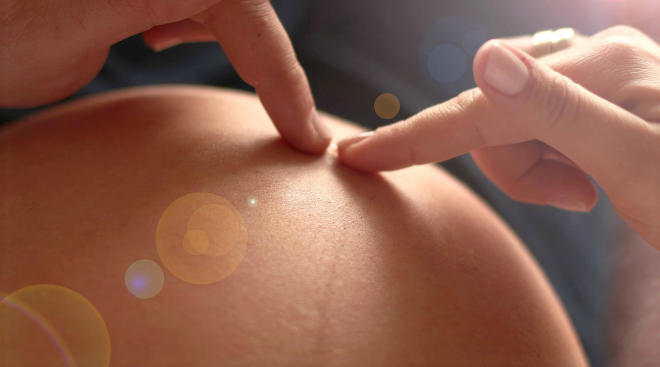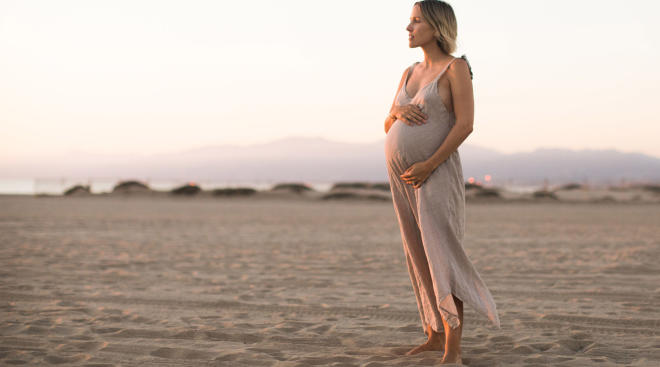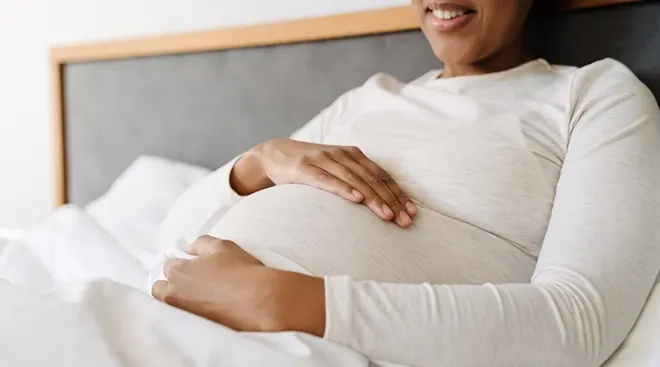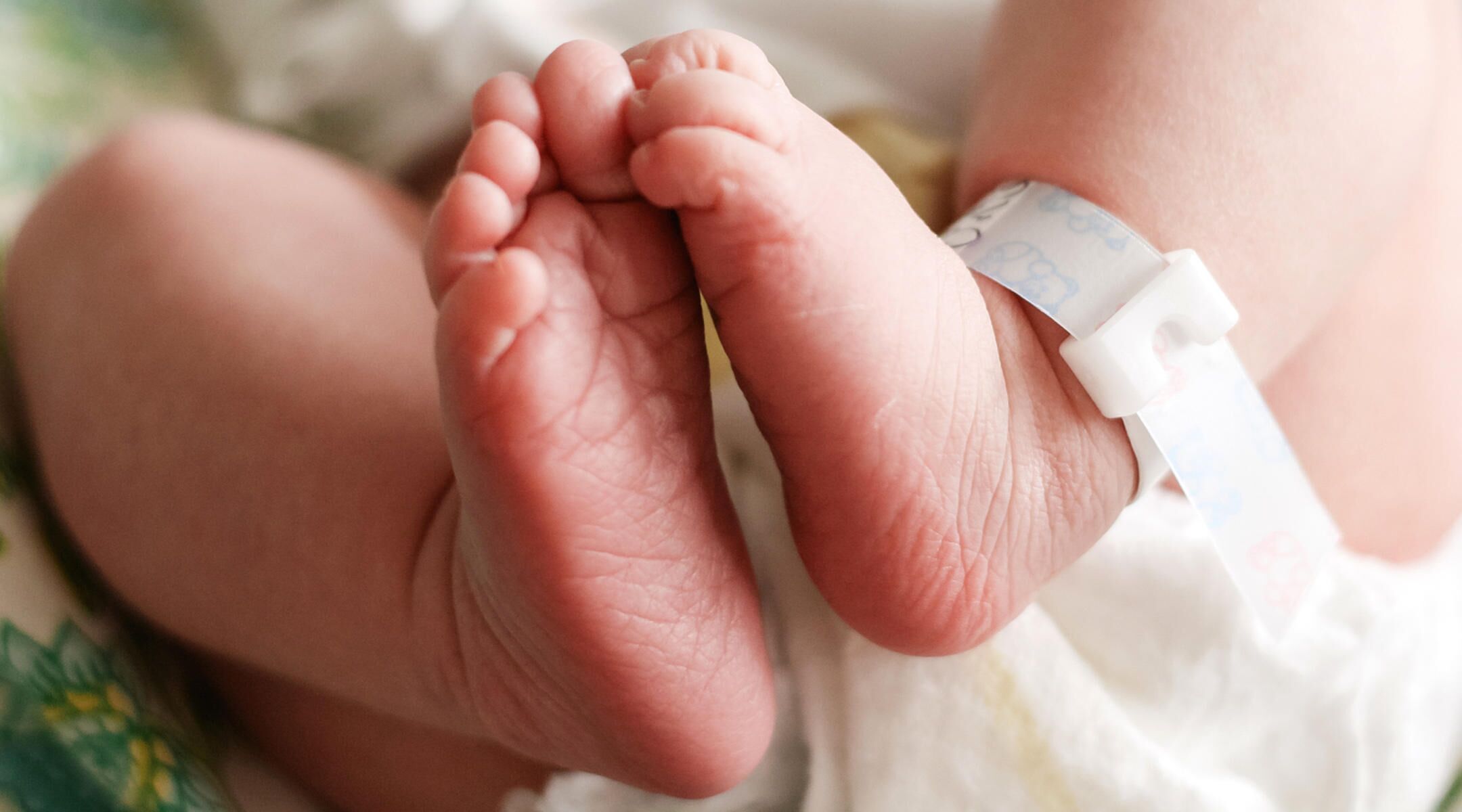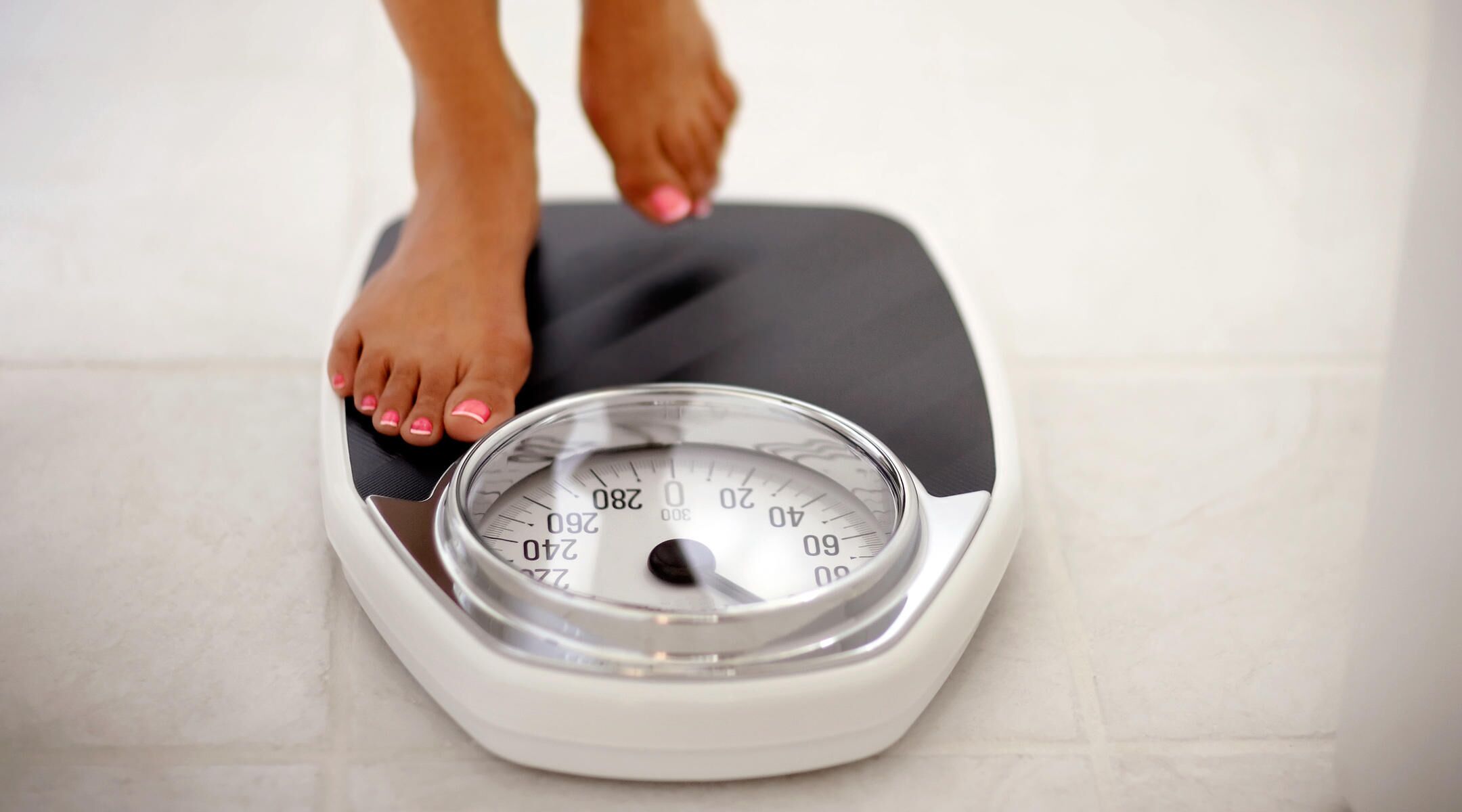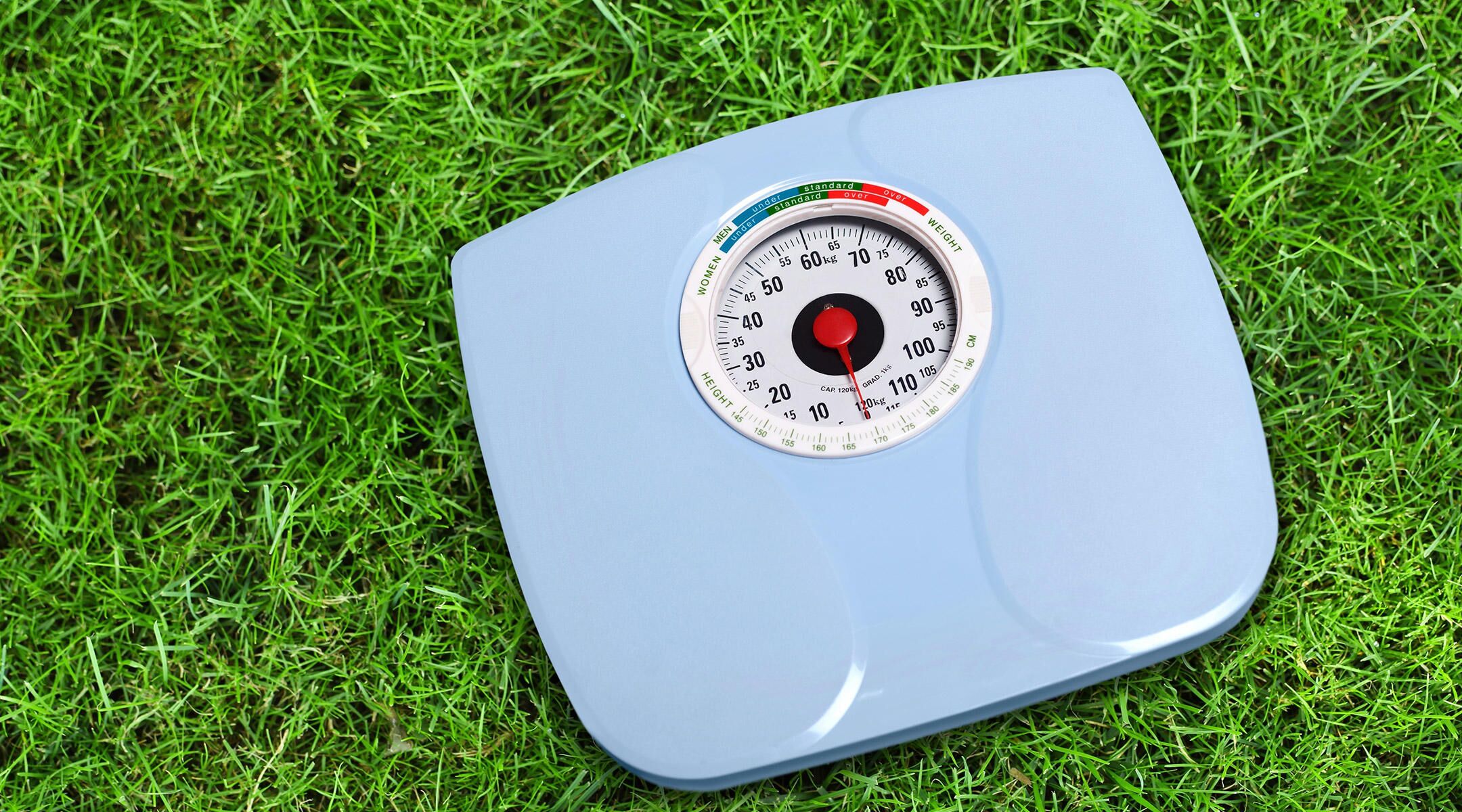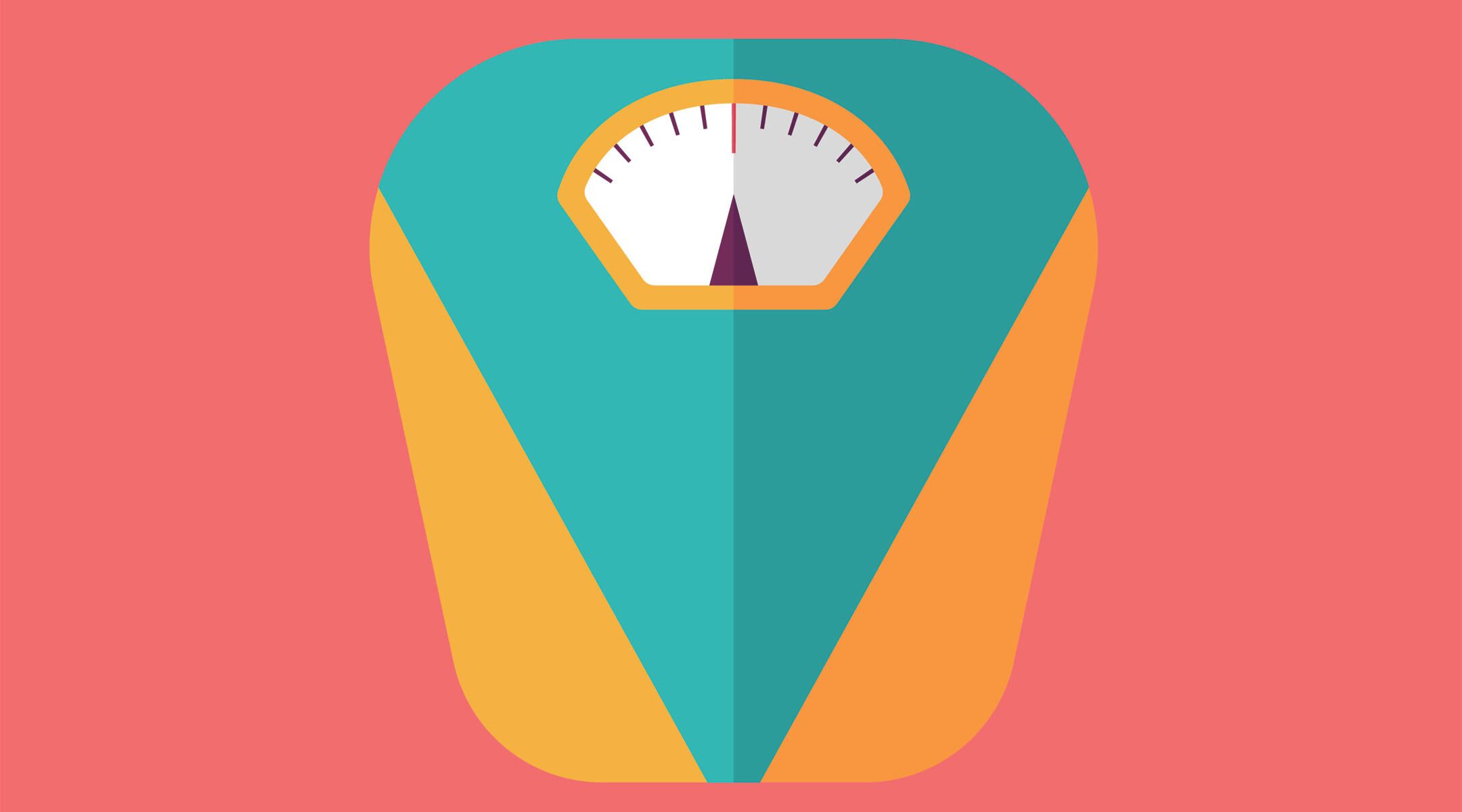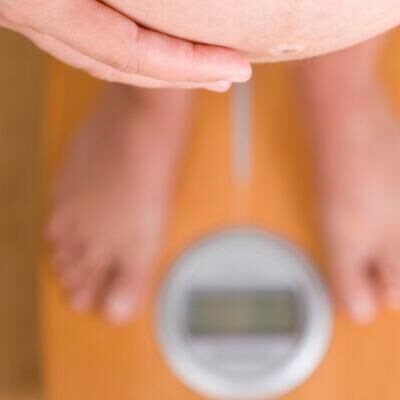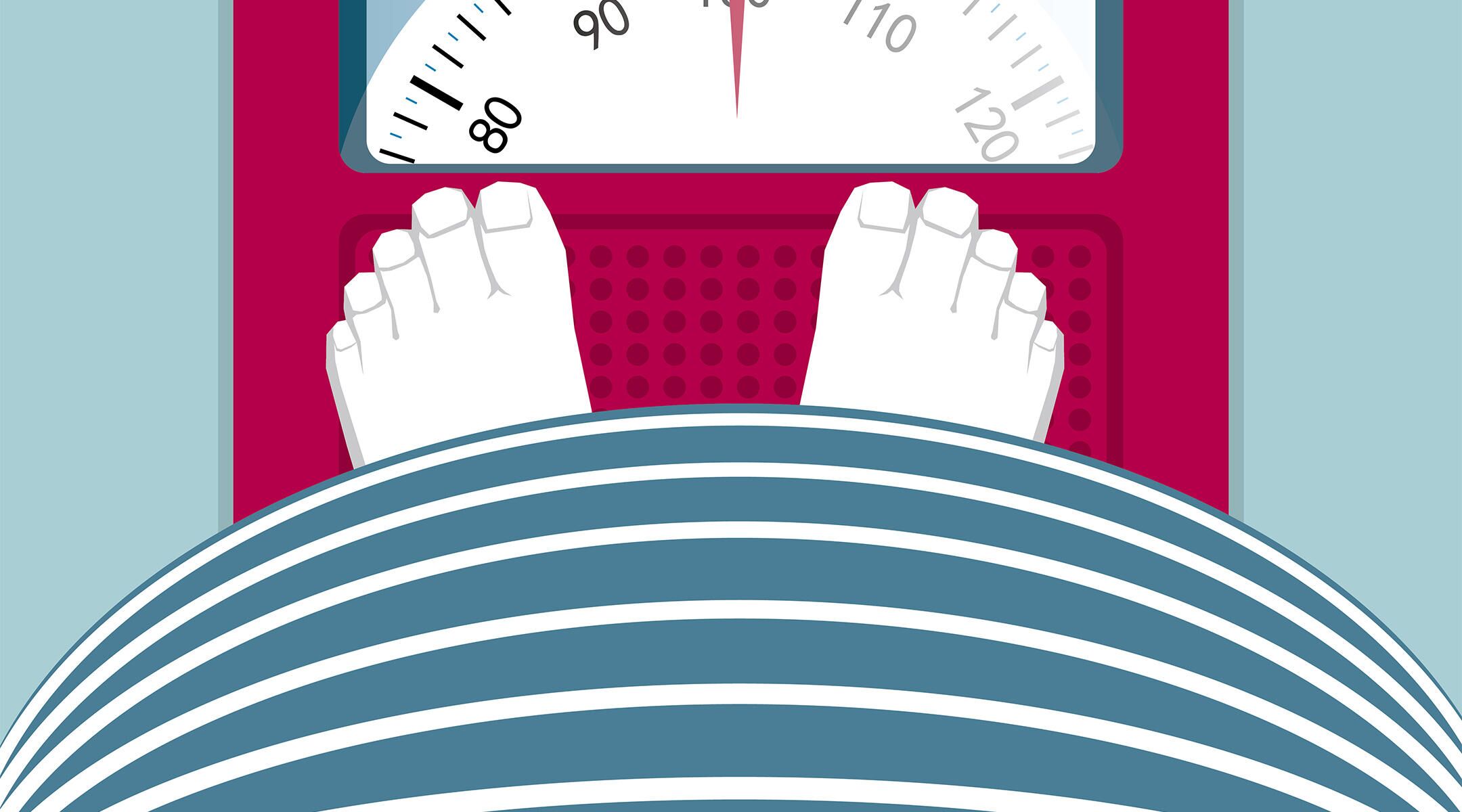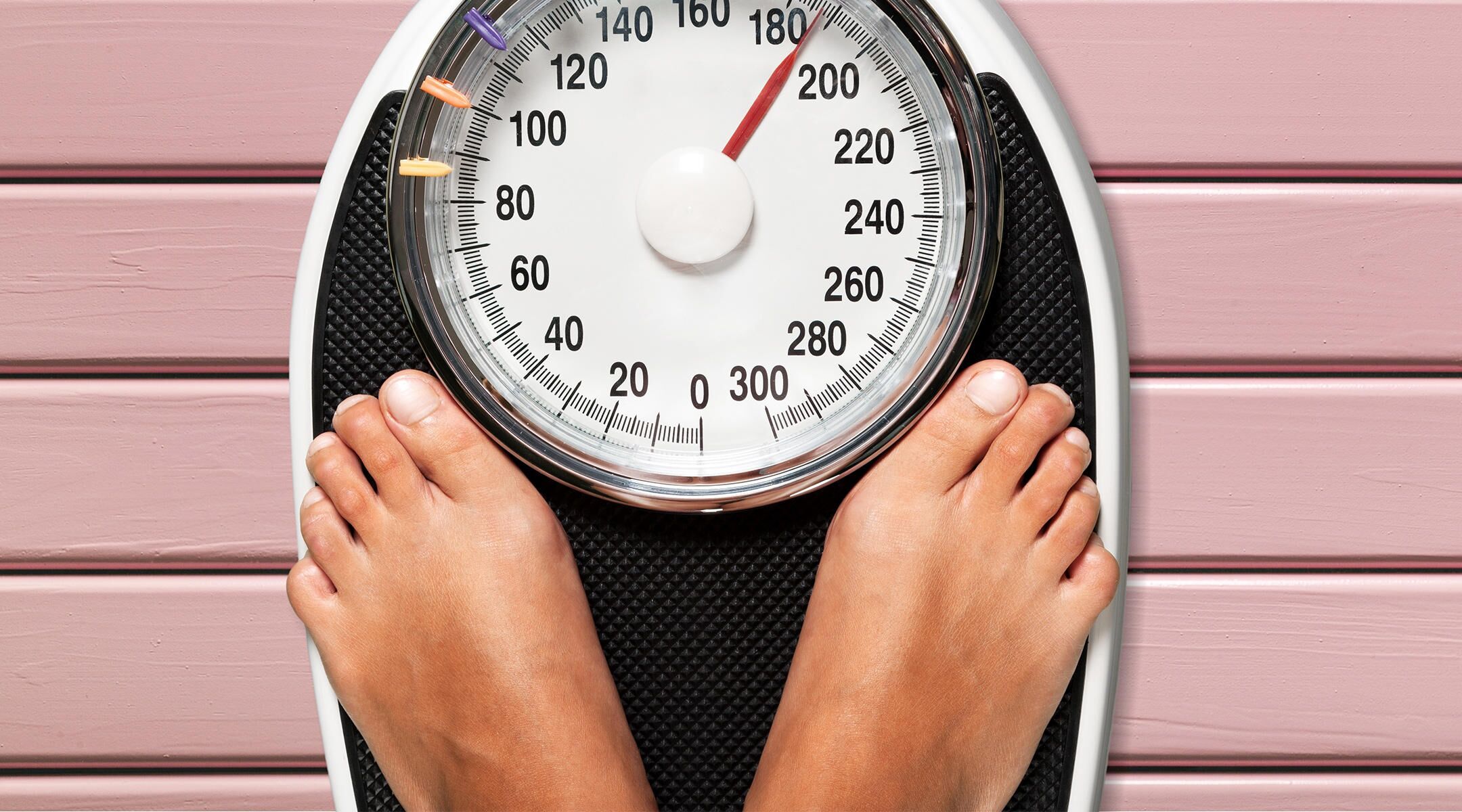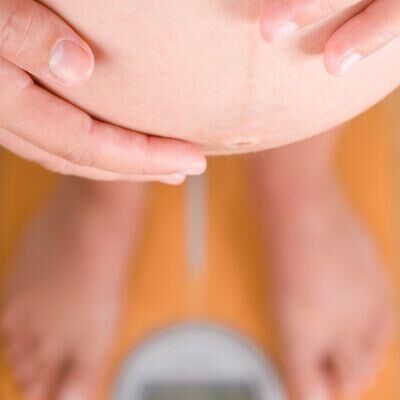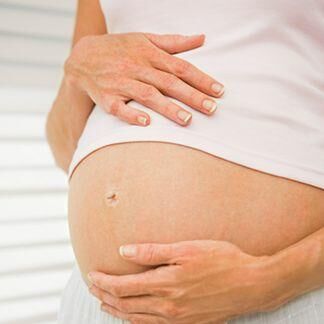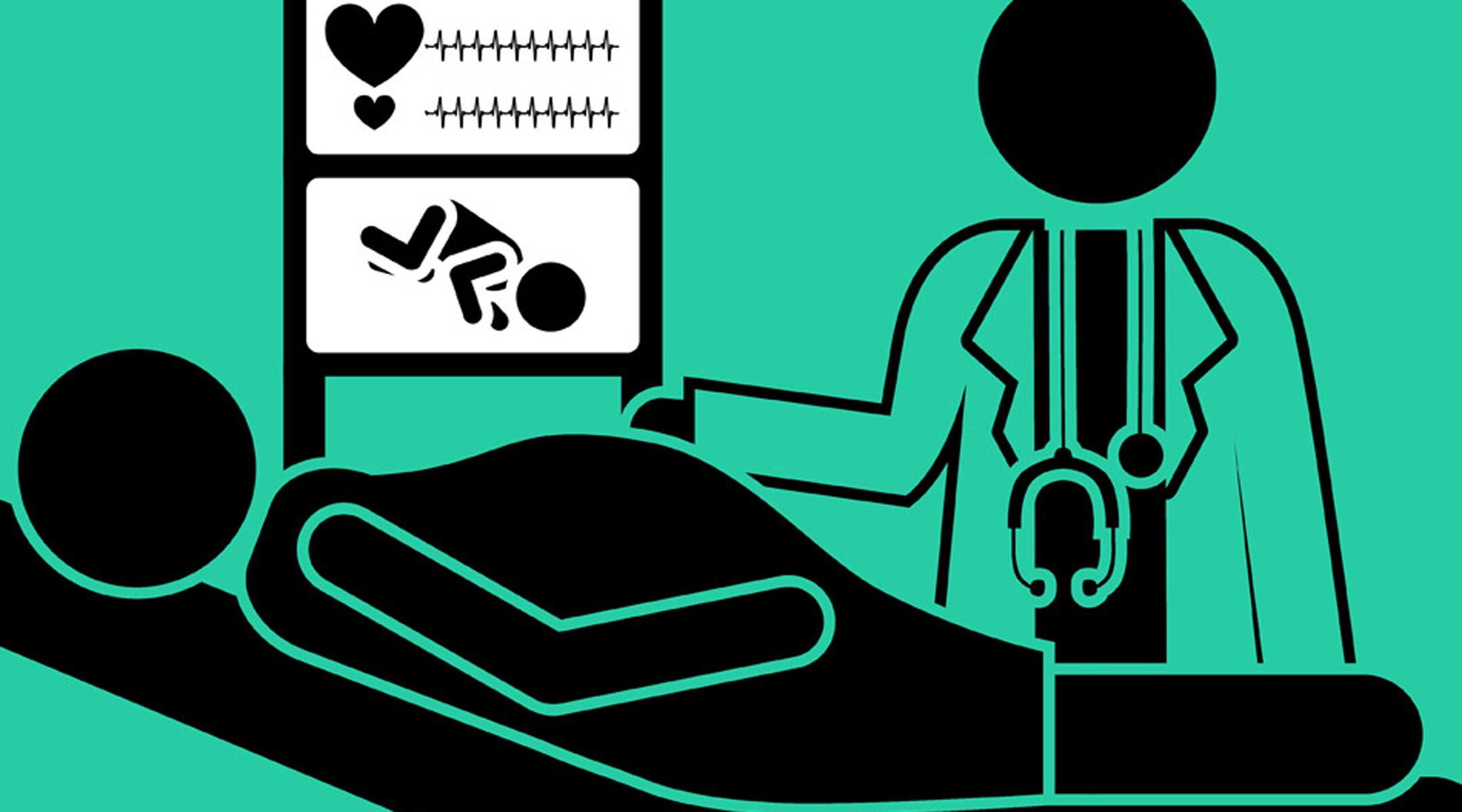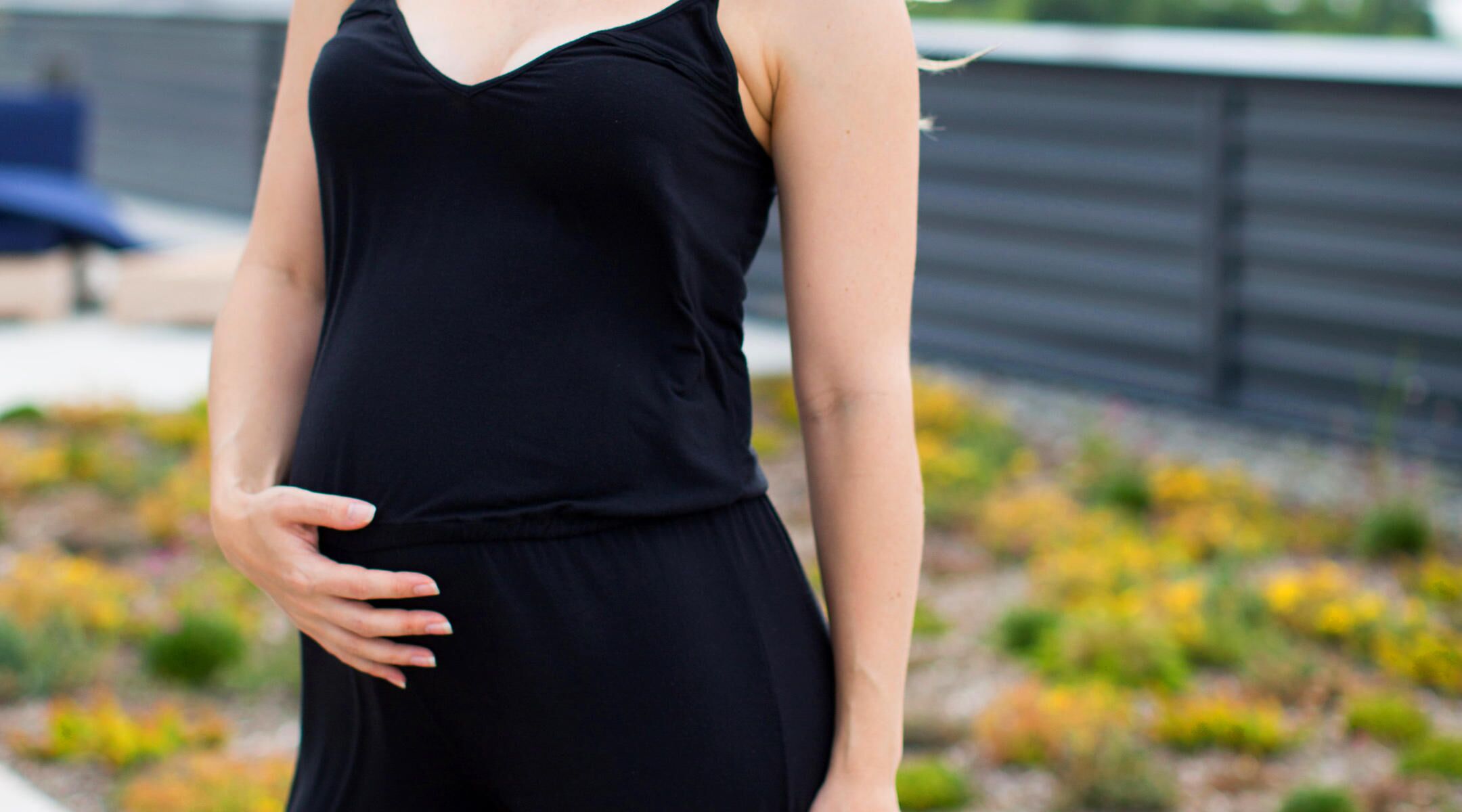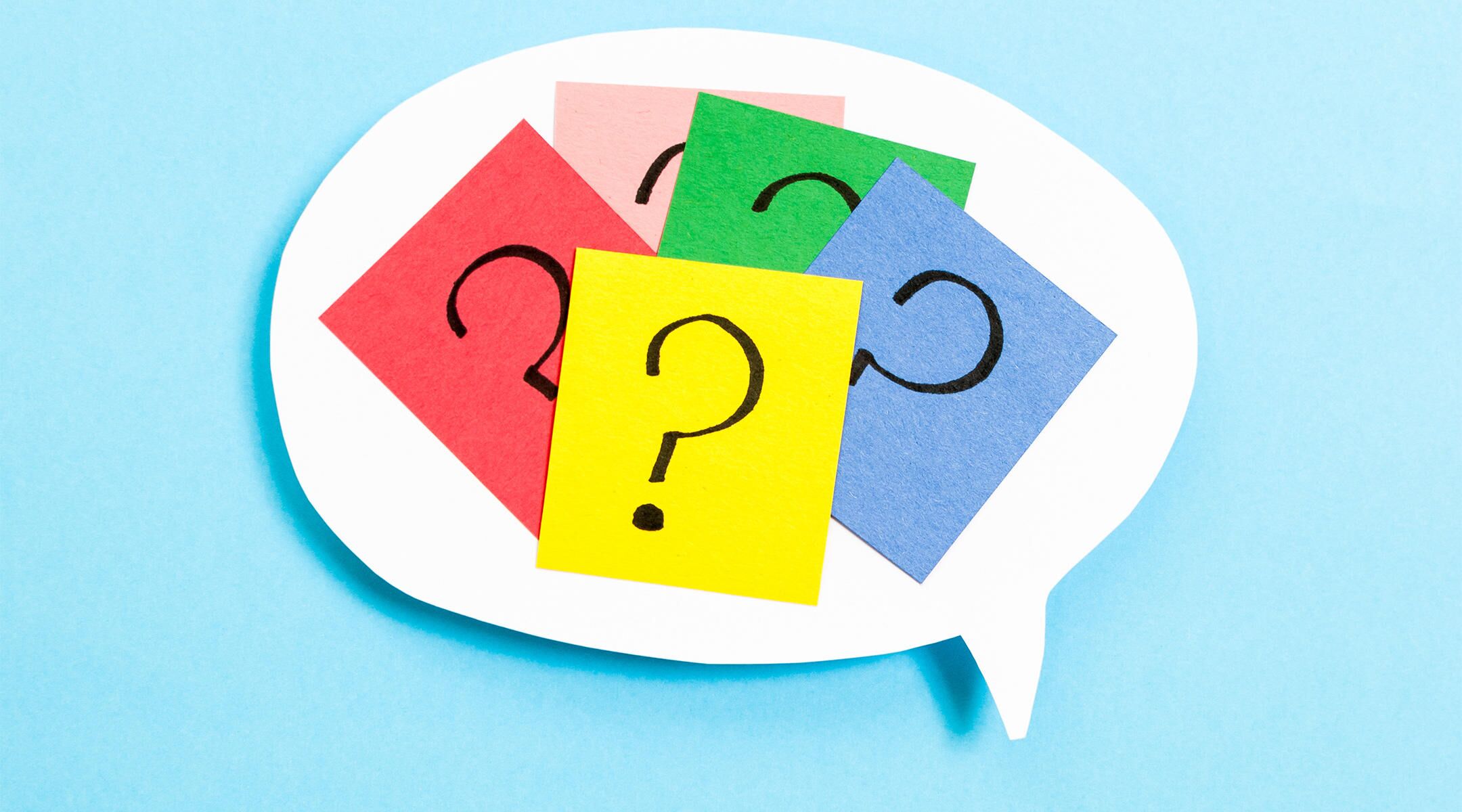A Body-Positive Guide to Plus-Size Pregnancy
Weight can be a sensitive topic. And since the scale becomes a regular part of prenatal appointments, it can feel especially overwhelming—especially if you’ve been told your weight isn’t in the average range for your height, or that your body mass index (BMI) is high. In the past, you may have heard negative comments about plus-size pregnancies, but it’s important to realize that they’re incredibly common—and not all that different from pregnancies among women of all shapes and sizes. Read on as experts break down recommended guidelines and tips for a healthy, happy plus-size pregnancy, plus some frequently asked questions.
It’s important to note the term “plus-size pregnancy” isn’t medical—it’s social. “There’s no formal or uniform definition of a plus-size pregnancy,” explains Skyler Jacobs, CNM, a certified nurse midwife with Perimom. “Instead, we consider a woman’s BMI to assess size, with a BMI greater than 25 considered overweight and a BMI greater than 30 considered obese.” She adds that while BMI does have limitations related to how it counts muscle mass and fat, it’s a good starting point for discussing prenatal care. “Those identifying as plus-size prior to pregnancy may consider themselves in this category,” adds Tia Jackson-Bey, MD, a reproductive endocrinologist and infertility specialist at RMA of New York. According to Credence Research, around 67 percent of American women are considered plus-size.
Weight gain recommendations for pregnancy are based on a woman’s pre-pregnancy weight and BMI. According to the American College of Obstetricians and Gynecologists (ACOG), women with a BMI over 25, should aim to gain 15 to 25 pounds. For women with a BMI over 30, the weight recommendation is 11 to 20 pounds. “These lower gestational weight gains may reduce the risk of adverse pregnancy outcomes associated with plus-size pregnancies,” Jacobs says.
Experts say weight gain can be managed with a balanced diet and regular exercise. A plus-size pregnancy is a higher-risk pregnancy, so following weight-gain guidelines is important, adds Margaret Wertheim Eich, RDN, a registered dietitian nutritionist in Madison, Wisconsin. But keep in mind: Pregnancy isn’t the time to start dieting. “I definitely do not recommend pregnant women restrict themselves to the point of depriving their bodies or their babies of the calories they both need,” Eich says. Instead, focus on eating nutrient-dense real foods emphasizing protein, healthy fats, vegetables and fruit while limiting foods with added sugar. Your provider will also help you manage and monitor your weight throughout pregnancy.
It’s important to keep in mind that each pregnancy is different and will have its own set of complications and risk factors, based on personal medical history. “During pregnancy, plus-size women may have any or no symptoms, because each pregnancy is unique,” Jackson-Bey explains. “If there are any underlying issues, such as muscle or joint pain, shortness of breath, constipation or digestive issues, these may be exacerbated in pregnancy.” That said, experts note that plus-size pregnancies may have some increased risks for Mom and baby.
Increased risks for Mom
Plus-size pregnancies are considered higher risk because there’s an increased chance of developing certain conditions. It’s important to note that most of these risks are related to your overall health and prenatal outcomes:
- Gestational diabetes: Women who are overweight or obese are more likely to develop gestational diabetes because they may already have a level of insulin resistance. In fact, per Mayo Clinic, for women at risk, your provider may screen you with glucose tests as early as the first prenatal appointment.
- Preeclampsia: Studies have found that obesity can increase the risk of preeclampsia by around three-fold. Again, this could be due to existing chronic conditions, like insulin resistance and sleep apnea.
- Sleep apnea: Sleep apnea usually occurs due there’s an obstruction in your airways and is caused by things like weight gain, baby’s positioning and hormonal changes—all of which are a big part of prenatal development. Per Mayo Clinic, if you already have obstructive sleep apnea, you could also be at an increased risk for preeclampsia.
- Carpal tunnel syndrome: If you feel tingling or numbness in your forearm or fingers, it could be carpal tunnel, which usually occurs due to hormonal changes during pregnancy.
- Pregnancy-related heart issues: Both high blood sugar (gestational diabetes) and high blood pressure (preeclampsia) can cause damage to the heart’s blood vessels and cause it to work harder, leading to an increased risk of heart disease.
- Blood clots in the legs or lungs: According to the Centers for Disease Control and Prevention (CDC), pregnant women are already at a higher risk for blood clots because during pregnancy blood automatically clots more easily to protect against blood loss during birth. Baby also puts pressure on your pelvic blood vessels, decreasing blood flow to the legs. Being overweight, obese or over age 35 can further increase the risk of blood clots and deep vein thrombosis (more on this below).
Due to the above, a plus-size pregnancy may also be increase a woman’s risk for preterm birth, medical induction for labor and C-section.
All this can sound scary, but it’s important to note that there are other risk factors at play, besides BMI and weight, such as age, ethnicity and any pre-existing conditions. “Optimizing weight gain and management of any pre-existing conditions can help to decrease the development of these risk factors,” Jacobs says
Increased risks for baby
Due to the increased risks for Mom, there are also increased risks for baby. These include:
- Fetal macrosomia: This is when baby is born much larger than average; it’s often due to gestational diabetes. There may be a “need for increased monitoring of the pregnancy, especially fetal growth in the third trimester” for plus-size women, Jackson-Bey says.
- Childhood obesity: According to UCSF Benioff Children’s Hospital, childhood obesity is partially based on genetics. Kids who have one obese parent are 50 percent more likely to have childhood obesity, while kids with two obese parents are 80 percent more likely. In turn, this could cause an increased risk of other issues down the line, such as asthma, diabetes, high blood pressure, heart disease, sleep issues, growth issues and more
It’s important to note that mom’s weight isn’t the only risk factor here—there are other genetic and environmental factors that can play a role in the development of these conditions, as well.
There are lots of ways to ensure the well-being of yourself and baby during pregnancy—and all of them hold true regardless of size. Below, experts offer some tips on how to maintain your health and wellness throughout those nine+ months.
Eat a healthy, balanced diet
Plus-size women are more likely to have elevated blood sugar levels, which can lead to having a larger baby. For this reason, Eich recommends curbing carb intake. Many carbohydrate-rich foods, like sweets, soft drinks, bread, pasta and chips aren’t rich in vitamins and minerals compared with beans, nuts, meats or veggies. That said, cutting them out altogether can lead to fetal growth restriction, notes Romy Block, MD, an endocrinologist who sees patients in a high-risk obstetrics clinic in Chicago. Stick to more nutritious sources of carbs, like fruit, dairy products and whole grains, which will give you and baby the nutrients you both need. Of course, that doesn’t mean you can’t treat yourself every now and then—pregnancy is hard and you deserve it! Plus, sometimes it’s better to indulge in those cravings than try to look for alternatives. Just be mindful of portion size and your overall nutrition goals.
While you’re cutting back on carbs and sugar, focus on filling your plate with more lean protein, like chicken breast, sirloin cuts of beef, beans, fish, tofu and low-fat dairy. “There’s evidence that doing this helps prevent excessive pregnancy weight gain, decreases the risk of gestational diabetes and helps you feel more full,” says Julie Friedman, PhD, a clinical psychologist and assistant professor at the Northwestern University Feinberg School of Medicine. Jacobs recommends around 75 grams of protein daily for a singleton pregnancy.
Block suggests following this easy formula to get the right balance at every meal: Divide your plate into quarters. Fill one quarter with lean protein, another with grains/complex carbs and the last two with veggies or salad. Do this three times a day and you’ll have packed your meals full of nutrients, without overdoing it.
Stay active
Per the American College of Obstetricians and Gynecologists (ACOG), pregnant women who are medically cleared should get around 150 minutes of exercise per week. Speak to your provider about the best activities for you, but don’t discount walking. Numerous studies have found that regularly walking can have the same benefits as other forms of exercise.
Seek prenatal care
You want to ensure your provider is someone you trust and feel comfortable having honest conversations with. “A trusting relationship between a pregnant woman and her provider can be an essential aspect of a woman’s pregnancy experience and outcomes,” Jacobs says. To ensure quality and unbiased care, Jacobs recommends asking the following questions:
- How often do you care for women my size?
- Are there any additional tests or protocols you recommend based solely on my weight?
- What are your typical birth outcomes for women my size?
- Does the birthing place have adequate resources, like a well prepared anesthesia team?
- Do your care team members have prior experience working with plus-sized women and monitoring their babies?
While it may not always be possible, Jacobs also recommends finding a provider you trust prior to conception, so you can begin your pregnancy journey without stress. One way to do this is by asking loved ones with positive experiences for their provider recommendations. “Look for doctors who practice the Health at Every Size (HAES) approach or mention being anti-diet in their bios and social media profiles,” Jackson-Bey suggests. Once you have a provider you like, be proactive and schedule a preconception appointment to discuss family planning and any pregnancy concerns. You’ll want to come prepared with notes about your family and health history and any questions you may have. “Trust your instincts and remember that you can always seek another opinion if you feel uncomfortable or desire a different care experience,” adds Jackson-Bey.
Take your daily prenatal vitamin
Prenatal vitamins help ensure you and baby are both getting the vitamins and minerals you need, such as folic acid, calcium, iodine, choline and more, says Eich. Of course, always check with your provider about the right vitamin for your particular needs.
Rest up
Have you ever noticed it’s much harder to eat right, exercise and feel your best when you’re extra tired? Lack of sleep increases cortisol levels, which makes your body want to eat more, Friedman explains. Chances are, heartburn, leg cramps or vivid dreams are going to disrupt your sleep at least some nights, but you can make sure you get the best rest possible by having a set wake and sleep time, and prioritizing rest.
Don’t try too hard to be “perfect”
You and your body are going through a lot right now, and it’s important to be kind to yourself through this memorable—but stressful—experience. “Preventing excessive weight gain during pregnancy has health benefits for both Mom and baby, but the same goes for preventing stress,” says Friedman. If eating “perfectly” while pregnant is stressing you out too much, take a step back and don’t beat yourself up if you have to give into the cravings once in a while. “No mother should feel overly pressured about weight during pregnancy,” Friedman says.
While plus-size women are at an increased risk for C-section, it’s possible to deliver vaginally with the right practices and labor positions, Jacobs says. “Women of any size can help prepare their pelvis for birth by opening up the pelvic inlet through deep squats in the weeks leading up to labor and implementing perineal massage starting at 36 weeks to help decrease the risk of severe tearing during a vaginal delivery,” she says.
Once in labor, Jackson-Bey notes that “plus-size women can labor in any position women of other sizes can.” This includes methods to decrease discomfort, open the pelvis and encourage baby to move down the birth canal.
Of course, certain conditions, such as prior uterine surgery, stalled labor, fetal distress or a breech baby may make vaginal delivery impossible, but Jackson-Bey notes many plus size women do have success giving birth vaginally. Jacobs points out that in most cases the increased risk of C-section in plus-size pregnancies comes from conditions such as gestational diabetes and preeclampsia. “Obesity in and of itself is a risk factor for cesarean birth due to its ability to prolong or obstruct the progress of labor for plus-size women,” she adds. “Utilizing movement and intentional position changes throughout labor is even more important in achieving a vaginal delivery for this reason.”
Quality postpartum care is essential for all women, regardless of size. Plus-size women should follow all the same guidelines for postpartum recovery, including getting rest, ensuring adequate hydration and nutrition and caring for healing tissue to prevent infection.
There may be some postpartum conditions that plus-sized women need to be carefully monitored for, including blood sugar and blood pressure levels, as well as blood clots in the legs or lungs. “Plus-sized women may also be at risk for deep vein thrombosis (DVT), as obesity and prolonged periods of inactivity are both risk factors,” Jacobs says. “This risk is furthermore increased for women who undergo a cesarean delivery, as surgery is also a risk factor.” She recommends all postpartum women use compression socks and walk around as much as possible. “For some women, the administration of blood thinners may also be necessary based on personal history,” she adds.
To ensure you’re healing well and all these factors are under control, it may be necessary to see your provider sooner than six weeks postpartum, Jackson-Bey says. “Having support around you and knowing the warning signs of these conditions is important,” she adds.
Frequently Asked Questions
When will I start showing in a plus size pregnancy?
Regardless of size, when each woman starts to show in pregnancy is highly individualized. “This is in large part due to the differences in body builds, with women who have longer torsos showing much later than women with short torsos,” Jacobs says. It can also depend on whether or not this is your first pregnancy (in which you may show later) or a subsequent one (in which you may show earlier). However, she adds that plus-size women may show later, especially if they have more fatty tissue in their abdominal area.
What will my baby bump look like in a plus-size pregnancy?
When looking at your plus-size pregnancy belly from the side, you may notice a capital “B” bump shape. “Although this is not a guarantee and every belly shape is unique, plus-size women can more commonly take on a B-shaped belly, especially if they carry excess weight in their abdominal region,” Jacobs explains. “Tight fascia (the saran wrap-like substance that covers muscular tissue) can also contribute to a B-shaped belly.”
Can you get an epidural if you’re plus size?
While you can get an epidural if you’re plus-size, they may be administered early on and can be harder to place if there’s more fatty tissue. That’s why it’s important to work with an anesthesiology team with previous experience administering epidurals in plus size women.
How do weight and BMI affect fertility?
Per Mayo Clinic, having a higher BMI can hinder regular ovulation cycles, which may make it more difficult to conceive. Furthermore, studies have found that obesity can increase the risk of infertility three fold.
It can be scary navigating a plus-size pregnancy, with information circulating about increased risks. While it’s important to stay informed, keep in mind that most plus-size moms have healthy pregnancies. Keep an open path of communication with your provider, and enjoy this exciting journey.
Plus More From The Bump
Please note: The Bump and the materials and information it contains are not intended to, and do not constitute, medical or other health advice or diagnosis and should not be used as such. You should always consult with a qualified physician or health professional about your specific circumstances.
Romy Block, MD, is an endocrinologist who sees patients in a high-risk obstetrics clinic in the Chicago area. She earned her medical degree from Tel Aviv University’s Sackler School of Medicine and completed her residency at Hofstra North Shore University Hospital.
Julie Friedman, PhD, is a clinical psychologist and an assistant professor at the Northwestern University Feinberg School of Medicine. She’s also the co-founder and executive clinical director of Skyway Behavioral Health. She completed a 2-year post-doctoral fellowship in behavioral medicine at eating disorders at Northwestern Memorial Hospital.
Tia Jackson-Bey, MD, is a reproductive endocrinologist and infertility specialist at RMA of New York. She earned her medical degree from University of Cincinnati College of Medicine and completed her residency at Duke University Medical Center.
Skyler Jacobs, CNM, is a certified nurse midwife with Perimom and Modern Obstetrics and Gynecology of North Atlanta in Georgia, practicing full-scope midwifery in the hospital and clinic setting. She is also the founder of Well & Worthy Co. where she passionately empowers expecting women through their pregnancy, birth and postpartum journey. Jacobs earned her master’s degree at Vanderbilt’s School of Nursing in Nashville, Tennessee.
Margaret Wertheim Eich, RDN, is a registered dietitian nutritionist in Madison, Wisconsin with over a decade of experience, specializing in fertility, pregnancy and postpartum. She earned her bachelor’s in biochemistry from the University of Wisconsin-Madison and her master’s of science from Bastyr University in Seattle.
Credence Research, US Plus Size Clothing Market, March 2024
American College of Obstetricians and Gynecologists, Weight Gain During Pregnancy, January 2013
Mayo Clinic, Pregnancy and obesity: Know the risks, December 2022
Pregnancy Hypertension, The Role of Obesity in Preeclampsia, January 2011
Centers for Disease Control and Prevent, Understanding Your Risk for Blood Clots with Pregnancy, May 2024
PLoS One, Is there an increased risk of cesarean section in obese women after induction of labor? A retrospective cohort study, February 2022
UCSF Benioff Children's Hospital, Obesity
Women’s Health Reports, Increased Protein with Decreased Carbohydrate Intake Reduces Postprandial Blood Glucose Levels in Women with Gestational Diabetes: The iPRO Study, August 2022
American College of Obstetricians and Gynecologists, Exercise During Pregnancy, March 2022
Journal of Women’s Health, Effectiveness of Long and Short Bout Walking on Increasing Physical Activity in Women, February 2011
Reproductive Biology and Endocrinology, Obesity as disruptor of the female fertility, March 2018
US Department of Health and Human Services, Pregnancy for Every Body, December 2019
Learn how we ensure the accuracy of our content through our editorial and medical review process.
Navigate forward to interact with the calendar and select a date. Press the question mark key to get the keyboard shortcuts for changing dates.

































